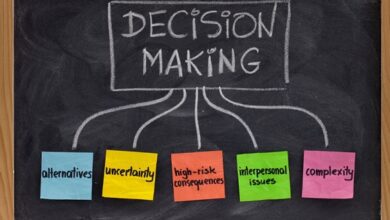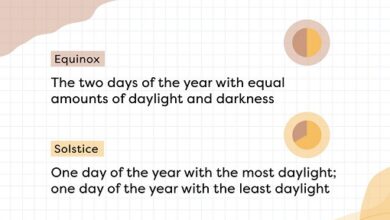What is Low frustration tolerance Causes How to improve the ability
Low frustration tolerance
We can’t get everything we want . This simple sentence expresses a fact that can be extremely difficult, depending on how much we want it. Sometimes circumstances do not help, sometimes we create excessively demanding goals or sometimes we are forced to reach a level that at least for the moment we cannot reach. In this article we will provide you the information about Low frustration tolerance.
This occurs throughout the life cycle, from birth to the grave, and is one cause of the different levels of frustration we face. And frustration can be difficult to deal with.
Each of us has a concrete capacity to tolerate it, there are people who have a high tolerance for frustration and for whom this does not create an impediment, but a simple annoyance and others with low tolerance for frustration who are paralyzed with minimal difficulty and abandon the action. It is about the last case that we will talk about throughout this article.
Low frustration tolerance explanation
Low frustration tolerance or frustration intolerance is understood as the absence or low level of ability to withstand this set of events or circumstances that can frustrate us. Low frustration tolerance makes us not able to react to the appearance of it, abandoning our actions and being unable to persevere and fight against difficulties . In other words, those who have a low tolerance for frustration, what they have is a great difficulty in dealing with negative feelings, such as stress, discomfort or failure to achieve their own desires.
This inability to self-manage usually causes behavioral manifestations in the form of moody, irritable, and hostile behavior. Generally, failures are seen as caused by other people or circumstances, often appearing to be victimized and projecting blame onto others. They tend to be people who usually give up quickly when they see possible obstacles, focusing on how difficult things are and not seeing or believing in the possibility of solving the problem and getting through the difficulties themselves.
They focus on emotion, suffering, pain and avoidance. This can lead the subject to become impatient, dependent, demanding and even extremely passive. In some cases, it can trigger impulse control disorders such as kleptomania, or aggressive and violent behavior towards those who do not fulfill or hinder their own desires.
A low frustration tolerance also affects the ability to wait to delay gratification, something that can be essential for obtaining greater than immediate rewards. It is, therefore, associated with the need to achieve the satisfaction of their needs at the same time that they appear. This makes it difficult, for example, to start performing a necessary task in search of the gratification that generates rest or fun. In turn, both the difficulty in completing tasks and the perception of this lack of ability can be perceived as frustrating, worsening the situation and increasing the person’s discomfort .
Low frustration tolerance also has major consequences for the subject in several vital areas: at the family and social level, personal relationships suffer, sometimes generating a distance from the rest and dynamizing the relationship with the environment. At the labor level, it is linked to the lack of flexibility and response to unforeseen circumstances , which makes hiring and productivity difficult. With regard to self-actualization, a low tolerance for frustration tends to generate serious difficulties in achieving large long-term goals and this can also generate a decrease in self-esteem and self-concept or the appearance of utilitarian, narcissistic or histrionic behaviors .
A natural emotion
Before evaluating what a low frustration tolerance is, it is necessary to consider what this concept implies. Frustration is a feeling of an aversive nature in which a mixture of sadness, anger and disappointment appears in the absence of a goal or inability to achieve a goal or desire. It doesn’t really have to be a desire of its own, but it can also appear before breaking with the expectations and demands imposed on us.
It is a natural sensation that has nothing pathological about it (although depending on how it can become pathological), and which, as we said before, is continuously present throughout life whenever there is a situation of denial and impossibility. In early childhood and throughout childhood, we generally have a very low tolerance for frustration, but throughout development we are gradually learning to control it, manage it, and generate alternative responses. But what does a low frustration tolerance imply?
Causes of this Low frustration tolerance
We mentioned earlier that frustration tolerance is something that is acquired through development, with almost all children having very low capacity for it. Whether this tolerance is developed correctly or not can depend on a large number of variables.
First, and although it develops throughout life, there are biological differences that facilitate this fact. This is observable on the temperamental level ; there are young children who are able to endure frustration and hope for a better future or even generate strategies to reach their final goal. Others get frustrated and give up at the slightest difficulty, and many others even generate disruptive behaviors like toddler tantrums as a result of their inability to control their disgust.
Experience is one of the main factors explaining differences in frustration tolerance. To have a high tolerance, it will be necessary that, throughout life, we see that our goals and desires are achievable, but that this requires effort, having seen an association between effort and the achievement of goals, both short and long. long term. Also the awareness that waiting and not seeking immediate pleasure can lead to greater rewards over time.
Linked to the above, one of the reasons that can lead a person to be less tolerant and to get frustrated, even in adulthood, are the educational models we had. Excessively permissive parents, who respond quickly to any demand from their child, encourage them not to strive and learn that the things we want are achieved quickly. Once this standard is fixed, the subject will not be able to react to the presence of difficulties and what could be a mere discomfort or obstacle becomes an impenetrable wall that contradicts them and awakens their anger.
Another reason for low frustration tolerance is the existence, by the subject, of expectations, too high to have the real possibility of meeting them, so that your efforts never reach the required or desired level and you learn that it is not possible to achieve the objectives in itself. A continual fear of failure appears, and over time the ability to tolerate it disappears. This can be derived from learning, both by hyper-demanding parental models and by excessive social demands.
How to improve the ability to tolerate frustration
As we mentioned, low frustration tolerance can be hugely limiting. Fortunately, we can train our resilience and skills to become more resilient and tolerant of aversive and frustrating situations.
Probably the first thing to work on is looking at frustration in isolation, recognizing where it comes from and why we find it so unbearable. Once this is done, we can use different methods to resolve the situation.
One strategy is to restructure personal beliefs about levels of demand and what we can achieve. It will be important to practice proposing realistic goals , ambitious or not, and to assess whether in all cases it will be easy for them to appear unpredictable. It is also useful that if we have very high goals, we try to break them down in such a way as to establish intermediate goals that will lead us to the final goal, without trying to reach our goal immediately from the beginning. The generation of alternative strategies to the original is also essential.
In the same way, we must also work on the relationship with failure and frustration, not seeing them as synonymous with expiration, but as a lesson that will lead us to reach our goals.
Another element to be trained would be to undergo exposure to frustrating situations with response prevention . Stress and anger management training and problem-solving training are essential. If the problems are linked to the social field, social skills may also be needed.




